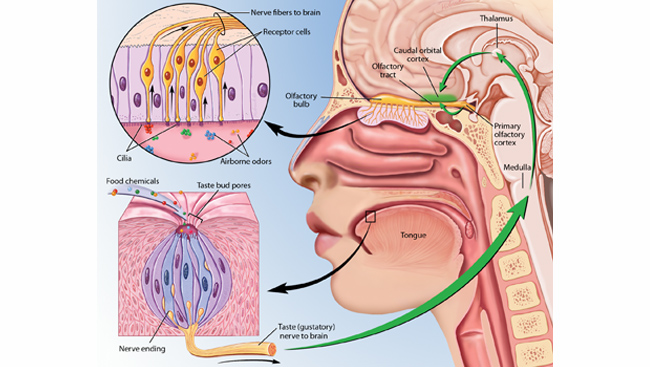Vision is blocked by a vanishingly thin sheet of rice paper.
Your dinner is burning in the other room, vision is useless.
Vision only works when there is sufficient light.
There's no smell darkness.
Vision is directional; it only tells you what is in front of your face.
You can smell an angry beaver behind you.
Vision defines our reality because we have such good vision. For bats and dolphins, sound is way better, and can easily give them more information than vision - including 3D imaging. Dolphins can sonar inside objects that are opaque to vision.
Question: Are humans the dominant race or are dogs?
Question: Are dogs as well at vision as humans?
Question: Are dogs very skilled at smell?
Question: If so why are they not the dominant race of the planet.
Smell deals in probabilities. Can I smell an angry beaver behind me? How?
Not enough data, to discern the spatial origin of the molecules as they hit my nose.
Only by turning in a 360, analyzing from memory the degrees of intensity of smells, priority to my rotational positioning.
We smell an angry beaver. It is not in our field of vision. Thus we deduce that it is probably behind us.
Sound, sonar, works in the same principles as photons: Fast moving waves, unchanged by wind or fluid bernoulli distortions altering their trajectory.
The waves paint a clear picture of reality, as opposed to small light weight particulates, subjected to fluid dynamics, similar in nature to leaves falling from a tree, random, slow, and chaotic.
This is not to be confused with sonar, utilizing water fluids, in order to traverse the ocean space.
Sonar cannot return color information. Thus precise material identification is made more difficult using sonar. Underwater it is more useful, or in the dark, when there is no other option, as light has difficulty traversing ocean space.


